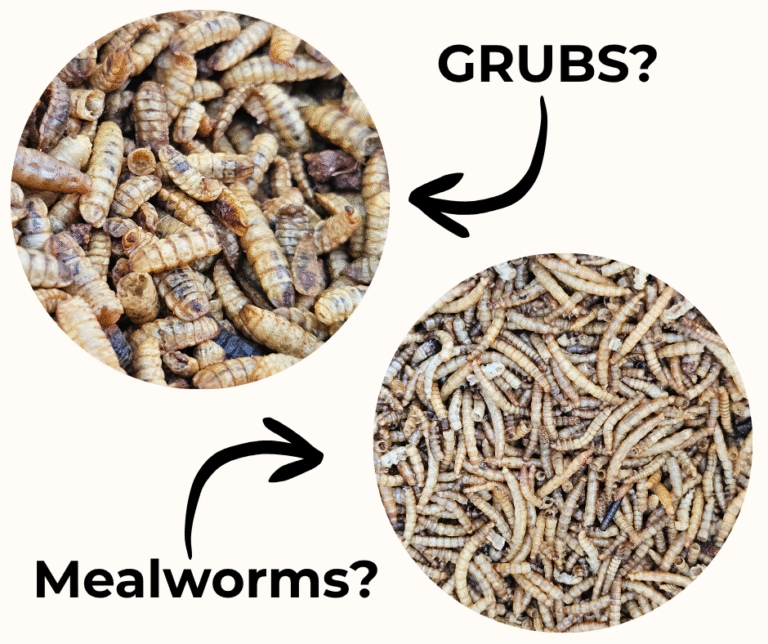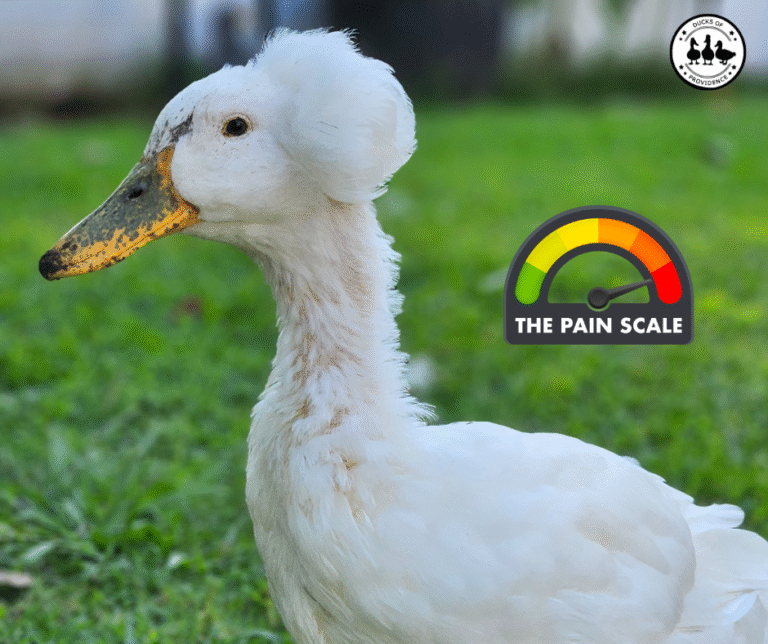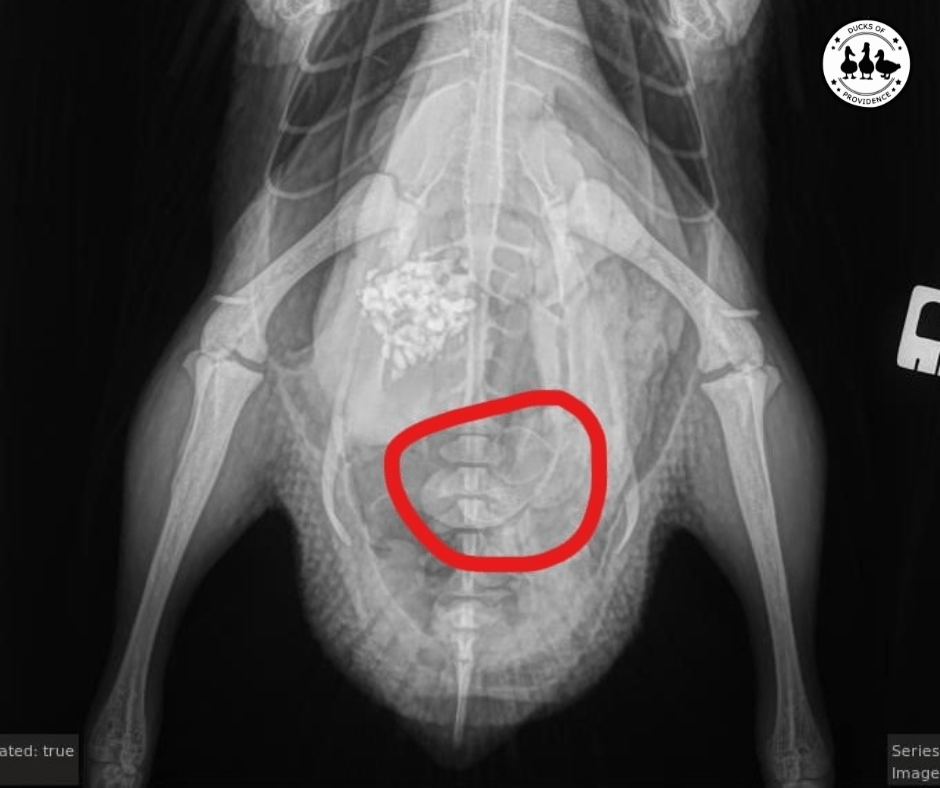
Breaking Down Egg Binding in Ducks: What Every Duck Keeper Should Know
Last updated on August 16th, 2024 at 09:20 pm
Egg binding, though rare, can occur in ducks just as it can in other egg-laying birds like chickens. This condition happens when a duck cannot lay her egg, causing it to become stuck in her reproductive tract. Duck keepers must be aware of the signs of egg binding and how to help their feathered friends if they encounter this issue.
This comprehensive guide will explore the causes, symptoms, and, most importantly, how to recognize and address egg binding in your beloved pet duck.
This article is part of our Duck Health Conditions Series.
If you want to read what happened to our Duck Schnatterinchen, continue reading here. You can also read about Penny and her egg-binging.
If your duck experiences this, you need to act fast! Egg-bound ducks can die within 24-48 hours!
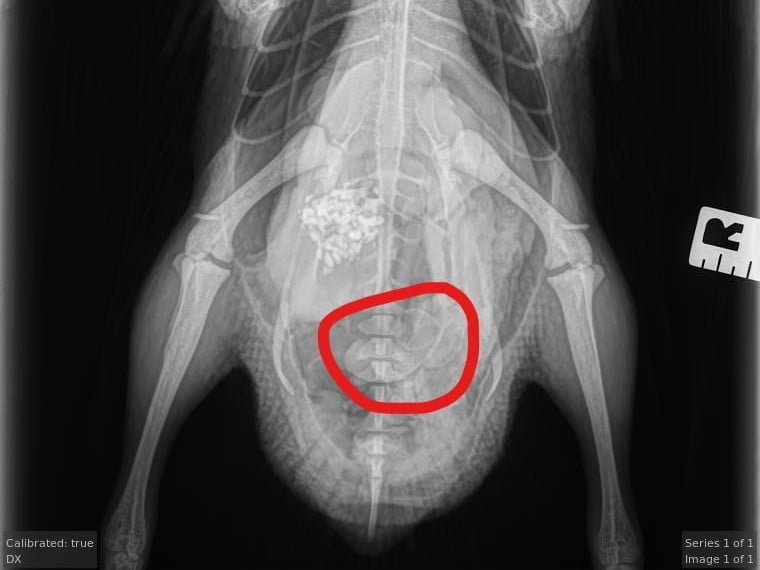
Disclaimer: I may earn a commission if you purchase products or services through my affiliate links. This does not affect the price you pay, and it helps me to continue creating content for you. I only recommend products and services that I believe in and that I think will be helpful to my readers.
How are Duck Eggs Formed?
Before we discuss the problems that ducks can experience with their eggs, we should examine the normal process of egg formation and laying.
Ducks are renowned for their prolific egg-laying capabilities, with certain species able to produce hundreds of eggs annually. But how exactly do ducks lay eggs? Let’s dive into the biology of duck egg production and the egg-laying process.
Egg production in ducks starts with ovulation. Like all birds, ducks possess a reproductive system comprising ovaries and oviducts, where eggs are created and transported outside the body. During ovulation, the ovary releases the yolk into the oviduct. If the duck is in breeding condition, sperm from a male duck can fertilize the yolk as it travels through the oviduct.
Once the yolk is released from the follicles, it moves through the oviduct and gets coated with layers of albumen, or egg white. The egg acquires its shell membrane in the isthmus before forming the hard, protective shell. The shell gland then calcifies the egg over approximately 20 hours, depositing calcium carbonate around the layer of hard albumen. After the egg is fully formed, it is laid. Ducks usually lay one egg daily; the entire egg formation process typically takes 24-26 hours. ➡️ Learn more about the science behind the egg-laying process.
The following video provides a great visual explanation of this process. While it focuses on egg development in chickens, it is highly informative, as the process in ducks is very similar.
What is Egg Binding?
Egg binding, or dystocia, is a common problem in domestic ducks. It occurs when a duck cannot pass an egg that has been formed, either due to a physical obstruction or a lack of muscle tone in the reproductive tract. This can be a serious issue for ducks, leading to infection, injury, and even death if left untreated.
Signs of Egg Binding in Ducks
Several signs indicate that a duck may be egg-bound. These include a swollen abdomen, lethargy, a lack of appetite, and straining to lay an egg without success. Sometimes, a duck may also show signs of pain or discomfort. Below is a comprehensive list of possible symptoms:
- Lethargy
- Decreased appetite
- Abdominal straining
- Visible distress
- Difficulty walking or standing
- Fluffed feathers
- Reduced vocalization or quacking
- Swollen or distended abdomen
- Prolonged periods spent in the nesting area or inside the pool/water bowl
- Droppings may be abnormal in consistency or color
- Labored breathing
- Irritability or aggression
- Excessive preening or grooming of the vent area
- Inability to pass feces
- Loss of balance or coordination
- Sitting in a hunched position
- Excessive vocalization or distress calls
- Drooping wings or tail
- Reduced mobility or reluctance to move
- Signs of pain or discomfort, such as vocalizing when touched or palpated
If you suspect a duck is egg-bound, seeking veterinary care as soon as possible is important. The egg could block feces from getting released. Your duck can die within 24 hours if this happens. So check to see if your duck still poops.
Causes of Egg Binding:
Several factors can contribute to egg binding in the complex world of duck physiology. Among the most common are:
- Lack of calcium or other essential nutrients in the diet
- Hormonal imbalances
- Physical obstructions such as tumors or cysts in the reproductive tract
- Genetic predisposition
- Previous injuries or trauma to the reproductive system
Calcium Deficiency
One of the primary reasons for egg binding in ducks is a deficiency in essential nutrients, particularly calcium. Ducks require a steady supply of calcium to develop strong and resilient eggshells. Without an adequate calcium intake, the eggshell may become thin and fragile, increasing the likelihood of complications during the laying process. You may want to read more about soft-shedd eggs in ducks and how this can often be combined with egg-binding.
Oyster Shells
Calcium plays a vital role in developing and maintaining strong bones and eggshells in ducks. As a valued Ducks of Providence community member, we’re excited to offer you an exclusive discount on Scratch and Peck Oyster Shells. Simply use code providence15 to save 15% on your first order with Scratch and Peck (the discount works for their other products as well).
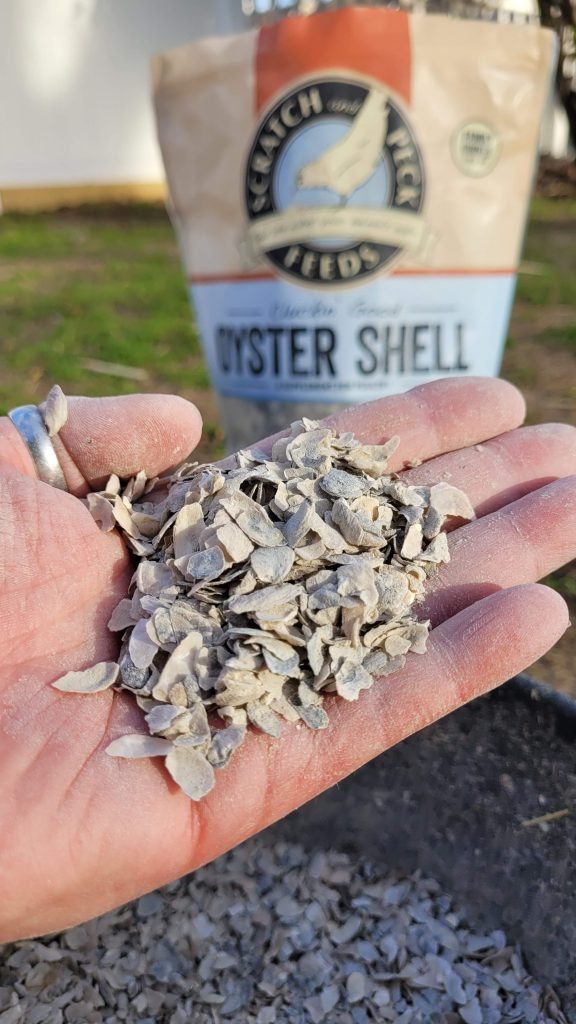
Hormonal Imbalances
Furthermore, hormonal imbalances can disrupt the delicate interplay of reproductive hormones that orchestrate egg production and release. Fluctuations in hormone levels, whether due to stress, illness, or other underlying factors, can disrupt the normal egg-laying rhythm and predispose ducks to egg binding.
Physical Obstructions
In some cases, physical obstructions within the reproductive tract can impede the passage of eggs, leading to egg binding. Tumors, cysts, or other abnormalities may obstruct the oviduct, preventing the egg from progressing along its natural path. These obstructions can pose significant challenges and may require veterinary intervention to resolve.
Previous Injuries
Genetic predispositions or previous injuries can also increase the likelihood of egg binding in certain ducks. Genetic factors may influence the structure or function of the reproductive system, while past injuries or trauma may leave lingering effects that affect egg-laying. Understanding these diverse causes is essential for duck keepers to recognize the signs of egg binding early and take proactive measures to support their ducks’ health and well-being.
Treatment Options for Egg Binding in Ducks:
When ducks are faced with the challenging situation of egg binding, prompt and appropriate treatment is essential to alleviate discomfort and prevent potential complications. The course of treatment will largely depend on the underlying cause of the egg binding, requiring a tailored approach to address the specific needs of each individual duck.
- Supportive Care:
- Calcium supplements or injections to strengthen uterine contractions
- Medications such as oxytocin to stimulate egg expulsion
- Fluid therapy to maintain hydration
- Antibiotics to prevent or treat secondary infections
- Providing a warm and quiet environment
- Surgical Intervention:
- Removal of physical obstructions within the reproductive tract
- Repair of any damage to the reproductive organs
Supplements
In cases where the egg is stuck due to muscle weakness or insufficient calcium levels, supportive care may be the initial course of action. Ducks may be given calcium supplements or injections to help strengthen uterine contractions and facilitate egg passage. Medications such as oxytocin, which stimulates uterine contractions, may be administered to aid in egg expulsion.
Eggshells
Also, a very good source of calcium is their own eggshells. Keep the egg shells, wash them, dry them, crush them, and feed them to your duck! They will love it!
Healthy Treats
Critters. If your ducks free range, they get calcium from insects and snails. You can also feed them Grubblies (check this blog post) because they contain a healthy calcium ratio. Minnows are also a good source of calcium. Wild ducks eat small fish all the time. You can get dried minnows or feed them life ones, which you can purchase at pet stores.

Black Soldier Fly Larvae
Grubs, aka BSL (black soldier fly larvae), are rich in proteins and fats and boast significantly higher calcium content than mealworms. They serve as a natural powerhouse for ducks. They promote optimal health and vibrant plumage, making them an essential treat for our feathered friends to thrive happily! We’re excited to offer you an exclusive discount on Grub Terra Products. Simply use code Providence10 to save 10% on your first order with Grub Terra (the discount works for their other products as well).
Calcium Supplements
When you think your duck is not getting enough calcium with their regular diet or your duck is already experiencing symptoms, you can give additional calcium. Make sure to give them avian calcium. Some in powder form can be added to their food, or some in liquid forms, like Calcivet, that you can give orally.
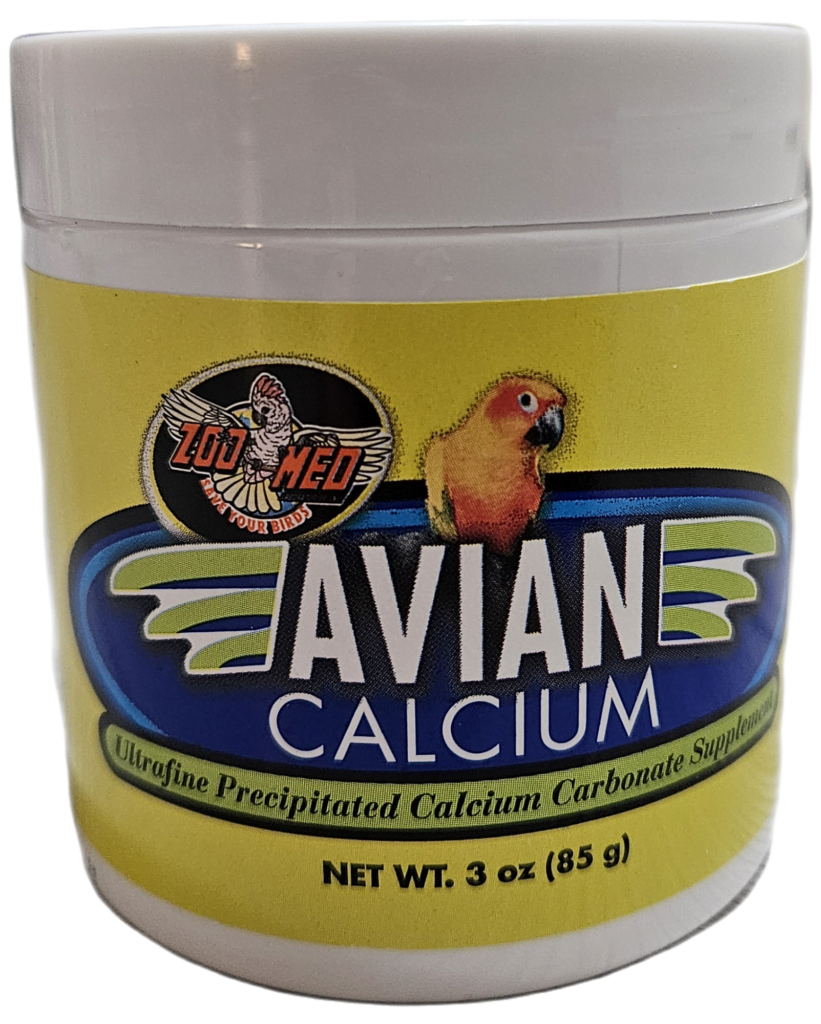
Our vet has prescribed Calcium Glubionate for Schnatterinchen. This is given orally through a feeding syringe (no needle). This form of calcium has good bioavailability when given in this form. I have seen many forums where people suggest calcium gluconate. Our vet said this is fine, too, but only if given as an injection because its bioavailability in the digestive tract is poor.
Other considerations
When you think your duck is getting enough calcium but still is laying soft-shelled eggs or is egg-bound, something else might be the reason. Ducks need vitamin D to absorb calcium fully. Maybe that is what your duck is lacking. Be also aware of the other food your duck is getting. Some food, especially acidic food, can prevent the duck from taking up calcium during digestion by making them insoluble and not absorbable in the intestines. Examples are citrus fruits and tomatoes. Spinach can also prevent their bodies from effectively absorbing calcium because it contains a high amount of oxalate. So be mindful of your ducks’ diet.
Surgical Intervention
However, surgical intervention may be necessary if the egg binding in your duck is caused by a physical obstruction within the reproductive tract. A skilled avian veterinarian can perform a surgical procedure to remove the obstruction, whether a tumor, cyst, or other anatomical anomaly, allowing the egg to be safely expelled. Surgery may also be required to repair any damage to the reproductive organs caused by the obstruction or prolonged egg retention.
Supportive Care
Throughout the treatment process, supportive care plays a crucial role in promoting the duck’s recovery and ensuring her comfort. Ducks experiencing egg binding may require supportive measures such as fluid therapy to maintain hydration and antibiotics to prevent or treat any secondary infections that may arise. Providing a warm and quiet environment, gentle handling, and monitoring can also help alleviate stress and aid in the healing process.
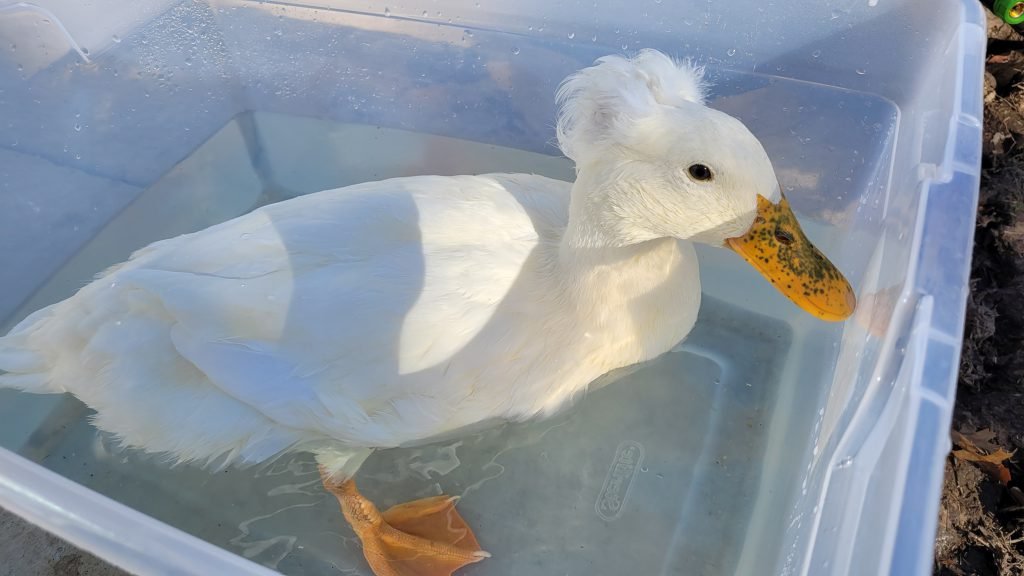
Epsom Bath
Make a warm bath with Epsom Salt for your duck and let her sit there for at least 30 minutes. This is a fantastic home remedy that will help to relax her muscles and fight off infections. It helped Schnatterinchen a lot, and she seemed to enjoy it.
Massage
Massage the muscles in that area either while she is inside the bath or with olive oil. In many cases, this leads to a successful egg passing. However, you need to be very careful because this could cause the egg inside to break, which is life-threatening. It’s always best to have the vet take care of it if in doubt.
If it breaks, you will have to remove all the shells manually. Any shell pieces left inside will cut and abrasion the interior of the oviduct, leaving your duck prone to infection. If the egg broke inside her, you would need to give her some antibiotics to prevent infection—this requires a veterinarian.
Prevention
Preventing egg binding in ducks is paramount for maintaining their health and well-being. One of the most crucial steps is ensuring they receive a balanced diet that’s abundant in calcium and other essential nutrients. Incorporating calcium-rich foods such as leafy greens, fortified feeds, and crushed eggshells into their diet can help support strong eggshell formation, reducing the likelihood of complications during the laying process.
Additionally, maintaining a clean and safe environment for ducks is vital to minimizing the risk of injury or infection, which can contribute to egg binding. Regular veterinary check-ups play a pivotal role in prevention, allowing for early detection of potential issues and prompt intervention when needed.
By prioritizing these preventive measures, you can proactively safeguard your beloved feathered companions’ health and reproductive well-being and ensure they enjoy a happy and quack-filled life.
Don’t Ignore It
Egg binding is a serious issue for ducks, with severe consequences if left untreated. One problem is that the egg blocks the feces from being released. This can be very serious and even fatal for the duck if not treated.
By being aware of the signs of egg binding and seeking prompt veterinary care, you can help ensure your ducks stay healthy and happy. Providing a balanced diet, a safe environment, and regular check-ups can also help reduce the risk of egg binding in your ducks.
Conclusion
Sometimes, egg binding in ducks can be challenging and potentially life-threatening, requiring intensive veterinary care and ongoing management. However, with timely intervention, appropriate treatment, and supportive care, many ducks can recover from egg binding and resume normal activities. By understanding the various treatment options and working closely with a knowledgeable veterinarian, duck keepers can provide their feathered friends with the best possible chance of overcoming this obstetric challenge and returning to a healthy and happy life.
Egg-binding and soft-shelled eggs are often related in ducks. Since soft eggs are harder to pass, they get more often stuck. ➡️ Explore more about soft-shelled eggs in ducks.
You might also be interested in learning how we dealt with our egg-bound duck, Penny.
Related Posts:
- How We Saved Our Egg-Bound Duck Schnatterinchen (Case Study)
- How We Treated Our Egg-Bound Duck Penny (Case Study)
- Soft-Shelled Eggs in Ducks – Everything You Need to Know
- Duck Egg Production: How Often Do Ducks Lay Eggs?
- No Eggs from Your Ducks? Discover 7 Reasons Why
- 15 Common Duck Health Conditions You Should Know About
- What Do Ducks Eat? Your Guide To Feeding Ducks
- 29 Must-have Items for Your Pet Duck First Aid Kit


